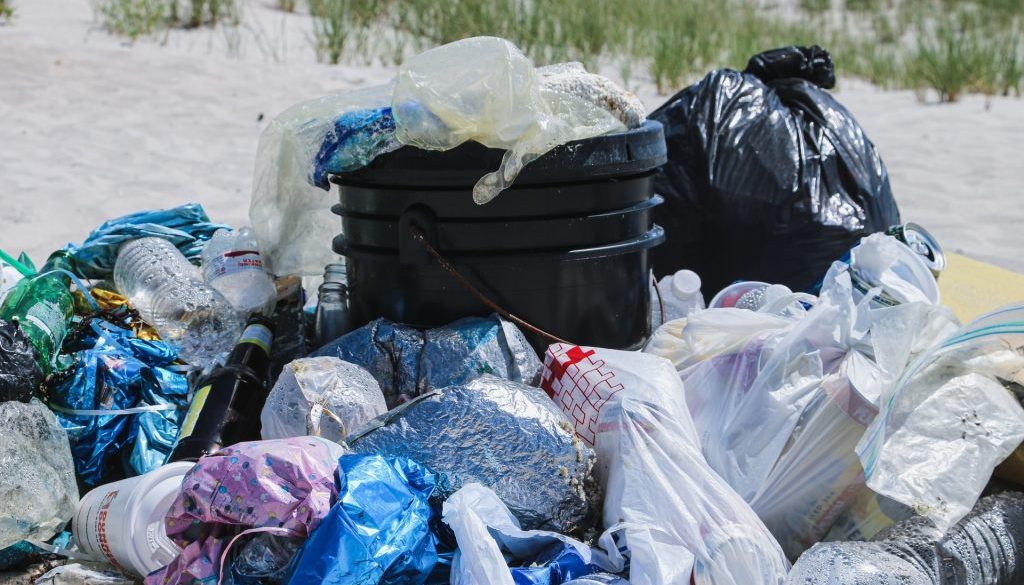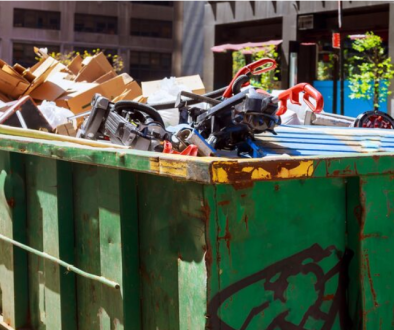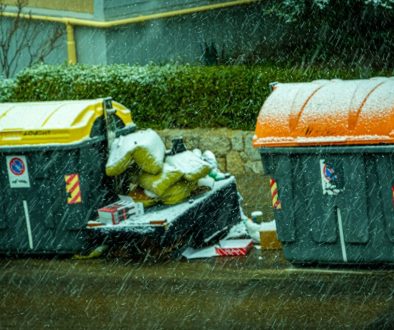Most communities make recycling a priority because of the benefits it brings to the community. It creates a cleaner environment for everyone to live in and helps sustain local economies by helping out with tourism.
How Does Recycling Help the Community?
Recycling is a way of collecting discarded materials and turning them into usable products in most cases. The recycling process helps to turn these materials into a resource that other people can use.
Recycling helps to reduce the amount of pollution that is produced. By recycling, communities can reduce the amount of waste sent to landfills and incinerators. In addition to the benefits to the environment, recycling has a significant impact on tourism as it can enhance the beauty of an area, which could be enticing to tourists.
The Major Benefits of Recycling
As mentioned above, recycling helps reduce pollution and enhances economic growth through tourism. Below are the specific benefits that recycling creates for the community.
1. Improved Air Quality
Many pollutants are released into the air when waste is thrown away or incinerated. These pollutants can cause a lot of harm to the community. By recycling, air quality is immediately improved, which directly impacts the community members. The cleaner the air, the healthier the members are.
2. Improved Water Quality
Along with improving air quality, recycling also helps to enhance the quality of water. Waste that is thrown away illegally is often dumped into a river or lake. The water from these bodies of water can cause health issues for members of the community. By recycling, the amount of waste is reduced, and the water is cleaner, providing a healthier environment for everyone.
3. More Jobs for the Community
Recycling creates jobs for the community. Since it is continuous, recycling facilities will always need to hire employees to help with the recycling process.
4. Sustainable Development
The increased use of recycled materials helps to reduce the need to use raw materials. By doing so, we are not further wasting or utilising resources, especially those that are non-renewable.
5. Brings the Community Together
Another significant benefit of recycling is allowing groups and communities to come together. When a recycling program is implemented, there is a chance that the whole community can get involved. The program directly impacts the community and creates a sense of togetherness amongst the people.
What Can and Can’t Be Recycled?
Now that we know more about the benefits of recycling and how it impacts the community, it is important to know the technicalities of recycling. Some things can and cannot be recycled, and you should be aware of them.
Things to Recycle
Below are some of the items that can be recycled and how people often choose to recycle them.
1. Paper
Paper is one of the most common recyclables. It can be recycled into paper pulp, used to make more paper. Paper includes newspapers, magazines, writing paper, brochures, envelopes, etc.
2. Plastic Bottles
Plastic bottles are commonly recycled items. When plastic bottles are recycled, they can be made into new plastic bottles or other plastic products, like hats, bags, and wallets. Other people even make them into home decor.
3. Glass Bottles
Glass bottles can also be recycled into new glass bottles or glass aggregate. Glass aggregate is used as a filler in other products, such as concrete. Some people may also recycle glass bottles and create decorations out of them, such as stained glass windows.
4. Metal Cans
Metal cans are commonly recycled. Since metal is such a popular recycling material, it can be turned into other metal products such as cutting boards, farming equipment, machinery, etc.
Things that Can’t Be Recycled
Some things cannot be recycled, mainly because they risk disease and infection if recycled.
1. Sanitary Products
Sanitary products like tampons and diapers cannot be recycled. This is because they could be carrying germs, bacteria or diseases from the person who previously used them.
2. Medical Items
Like sanitary products, medical items like blood bags, needles, plasters and syringes should not be recycled. They may be carrying bacteria and other viruses that could put people at risk if recycled.
3. Pet Waste
Pet waste also cannot be recycled. As much as possible, pet waste should be picked up immediately to avoid it from getting all over the place. Germs and bacteria can be transmitted to humans through pets, so recycling pet waste is not a good idea.
Common Misconceptions About Recycling
There are some misconceptions about recycling that can discourage people from practicing it. Below we discuss these misconceptions and the truth behind them.
1. Recycling Is Hard
Truth: Recycling is as simple as separating your trash.
Many people believe that recycling is complicated and takes a lot of effort. However, the truth is that recycling can be as simple as just segregating your trash. While we do encourage people to try to recycle their waste among themselves before throwing it away, there are cases where it is not possible. By segregating trash, you make sure your recyclables are brought to a recycling facility, meaning you have already recycled.
2. Recycling Just Wastes More Energy
Truth: Recycling uses less energy than starting from scratch.
With the thought that recycling wastes more energy, people may not want to recycle. However, that’s not the case. Recycling does not use more energy. It uses a lot less energy than making new products from scratch.
3. Recycling Barely Impacts the Environment
Truth: Recycling is effective, but the impact can only be seen if more people do it.
Another common misconception is that recycling barely has an impact on the environment. However, that’s wrong. As mentioned above, recycling helps to reduce pollution, saves water and reduces the need to use raw materials. Recycling makes a massive impact on the environment, but this impact is only visible if more people practice recycling.
Conclusion
In general, recycling has so many benefits for the community. It creates a better environment for everyone to live in, allows the community to come together, and it can even create more jobs for the community. If your community does not have a recycling program, you can push for the effort to start one.
Throw away your waste properly by getting a skip hire in Cheshire. If you have a lot of rubbish, make sure that you don’t leave it to the environment by calling Enviro Skip Hire where we can bring it to our recycling facilities. Throwing waste has never been easier than with us at Enviro Skip Hire!




